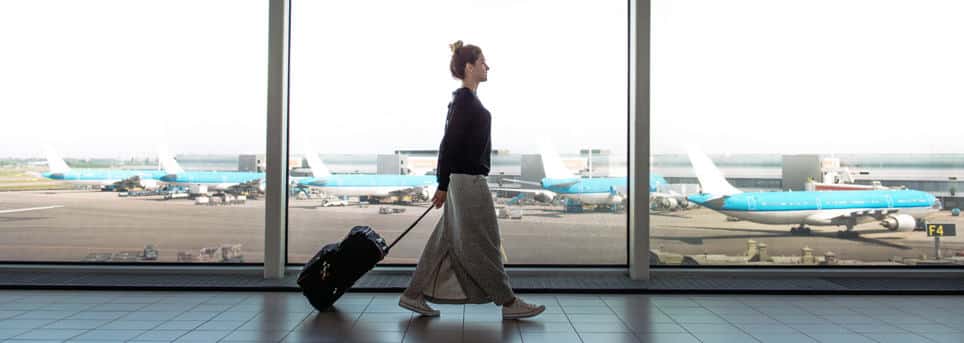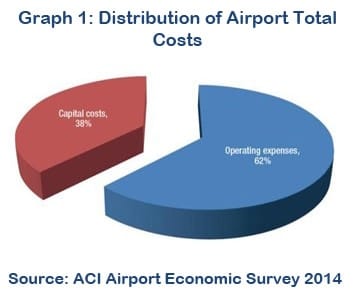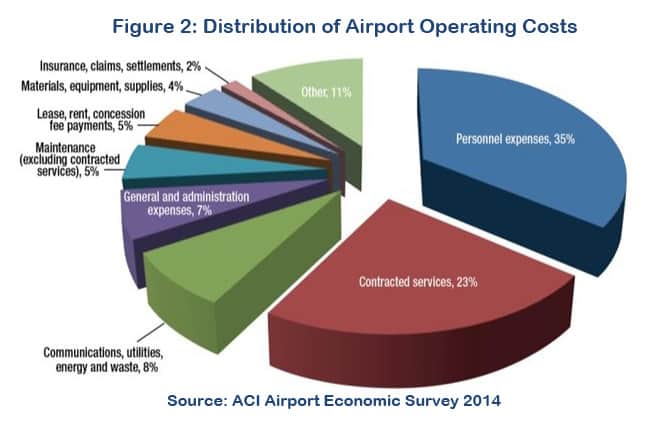
Uncertainty is a word repeatedly used this year, especially within the aviation industry and unfortunately, the situation continues to be uncertain. However, there are optimistic signs for UK Airports and Airlines with welcomed announcements made this month, November 2020.
Grant Shapps, Secretary of State for Transport announced during the virtual Airport Operators Association (AOA) Conference that the government will launch a ‘test and release’ programme after England’s’ November lockdown ends. In addition, there is very good news on the efficacy of some COVID-19 vaccines. But not until 2021!
The Airport sector has been impacted by cyclic recessions in the economy throughout the past, but not to the extent of COVID-19. The Airports Council International (ACI) reported on the 27th October 2020 that 193 Airports in Europe face insolvency.
Eurocontrol’s recently published 5-year forecast predicts that recovery will not reach 2019 levels until 2024. A prediction that Karen Dee, CEO from AOA echoed during their annual conference this month.
Like any severe recession in any industry, the main casualties are not at the front end of the trough but arise coming out at the other end. In Survival mode, an Airport can cut its’ Capital Expenditures (CapEx) fairly quickly and some of the variable costs in its’ Operating Expenses (OpEx), but its’ fixed costs remain suborn and its’ financing costs.
Over the next 5 to 10 years the financing of Airports will be extremely problematic as they try to recover their losses. In the past, charges to the Airlines or passengers may have been increased, but that will not be possible for the foreseeable future. Globally, Governments, Regulators and Airports will have to reset the economic conditions in which Airports operate.
So what is expected of the Airport operators as they try to plot their way through the ‘Survival Phase’?
Managing an Airport in ‘Survival’ is a Skill Set
The sector will have to learn the skills needed to manage an enterprise in ‘survival’. In the last 20 years, the management focus in Airports has been on passenger experience and capacity, not efficiency. Airline charges within the regulated framework have been consistent and on an upward trend. People and investment have been readily available to support airlines. Now revenue is challenged and totally inconsistent.
Airport Operational Efficiency
In two recent blogs, AiQ looked at cost-saving and efficiency initiatives to aid recovery. These practical suggestions have been proposed to a number of our key clients to include ‘Above the Wing’ and ‘Below the Wing’.
Airport Cost Savings
The total airport costs can be divided between operating expenses and capital costs. Referring to graph 1 below, ACI clearly shows that operating expenses make up 62% of total costs, with the remaining proportion designated to the capital cost.

Operating Costs Breakdown
The largest component of operating expenses continues to be personnel costs, which accounts for 35% including salaries, pensions and other employment costs relating to an airport’s staff.
You can view the distribution of all operating costs in figure 2 below.

Contracted services, which are comprised of activities outsourced to third parties, represent the second-largest component of operating expenses. These services make up 23% of operating expenses.
The extent to which an airport chooses to operate essential services using its own employees (insourcing) or by contracting services out to third parties (outsourcing) will inevitably affect the proportion of costs in the two main categories of operating expenses.
Both these graphs can be found in ICAO airport economic report here
Challenge Fixed Costs and Variable Costs
For Airports CaPex have been frozen and OpEx is being used very sparingly. Within the OpEx there are fixed and variable costs.
What seems a fixed cost pre Covid can be challenged post-Covid.
Make sure the Airports’ variable costs – mostly labour – are in line with revenues. This might be difficult negotiations with unions or stakeholders or suppliers or regulators, but the long-term survival of the enterprise is at stake. Tough calls must be made.
A Positive Perspective to Airport Change
AiQ Consulting began to work at Heathrow Airport 20 years ago, but its’ roots lie in Management Consultancy dating back to the late 1980’s. The founders and directors, Adrian Todd and Derek Allen have advised Multinational companies and SME’s through three major recessions helping them apply lean processes and make operational efficiency savings. While no one welcomes a recession, for many companies the survival and recovery phase represents an opportunity.
All recessions hasten the pace of change. Survival and recovery force issues and decisions must be made. The pace of change increases dramatically. Standing still is not an option.
Airport Survival 2020 through to Airport Recovery 2021 and beyond
We see a phased approach from now into 2021
- Survival – Stabilisation
- Recovery – Efficiency – Growth
As Management Consultants the tools at hand are well established, although not always in the Airport Sector. These include:
- Business Process Analytics and optimisation
- Business Process Re-Engineering and Improvement
- 6 Sigma Lean Operations
- Financial Analytics
- Re-purposing the organisation and its’ people
- Re-tasking and retraining people
At AiQ, we fuse our Management Consultancy experience into our deep knowledge of Airport Operations and add commercial awareness.
During the February lockdown 2020, AiQ team repurposed an existing in house airport modelling tool to support Airports through survival and into recovery. Our Airport Recovery Tool (ART), is a fast and simple to use software which quickly provides airport managers at all levels with a holistic operational vision across 13 key processes. Our team will also update the tool to include the newly announced ‘Test & Release’ COVID-19 testing.
In addition to our ART tool, we are able to observe, survey and provide recommendations on:
- Cost efficiency savings
- Practical Operational efficiency
- Lean processes
- Optimisation of the entire end to end airport
- Providing short term wins
- Reducing volatility by modelling
- Managing risk
If you need help with the above from award-winning airport operational experts with years of business knowledge, contact us for a conversation and FREE virtual initial meeting.


